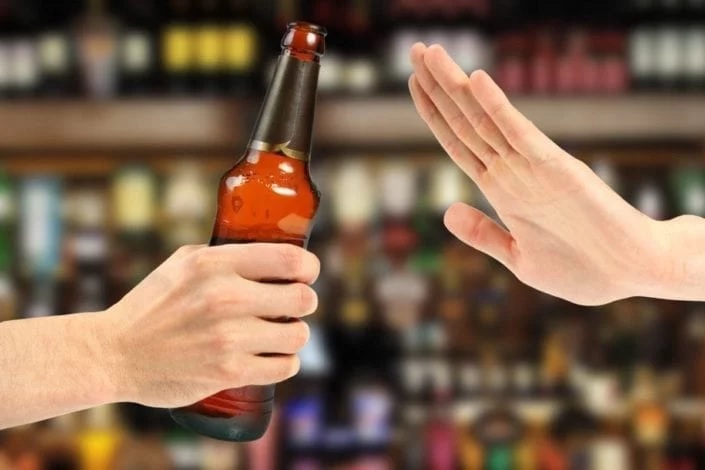Several pieces of research highlight the adverse effects of excessive intake of alcohol. One of them, a paper published in the National Library of Medicine, links excessive alcohol consumption to diseases like cancer, diabetes, neuropsychiatric disorders, and even cardiovascular diseases.
For a lot of individuals looking for ways to quit drinking, or reduce their consumption, the journey can be a long and difficult one. Some of the tallest hurdles to overcome on this journey are dealing with withdrawal symptoms and maintaining sobriety.
Even though these are tough, individuals looking to sober up can lean on some strategies to help them achieve their sobriety goals. These strategies have been used before, and they can help to quit drinking.
Self-help Strategies Overview
Find alternatives
After drinking has become a habit, individuals devote significant amounts of their time to it. It occupies a special place in their daily or weekly itinerary, and this can be one of the reasons why it’s difficult to quit drinking.
Quitting drinking altogether can create a vacuum in the individual’s daily agenda, and the lack of something to do can paradoxically drive them back to drinking.
Individuals looking to quit drinking should focus their energies on finding suitable alternatives to drinking. Picking up a new hobby or spending time building new or existing relationships can be good replacements. Additionally, individuals can also seek deterrents to drinking like drugs.
According to Harvard medical school, one such drug, Disulfiram, causes individuals to feel sick after taking alcohol. This, and others, like Naltrexone and Campral, can add up to become strategies to quit drinking for recovering alcoholics.
Avoid Drinking Triggers
Maintaining sobriety is difficult because it is a continuous process, and any relapse can lead the recovering individual right back where they started. Hence, triggers and situations that encourage drinking should be avoided.
Drinking triggers vary among individuals, but some of them include specific places, times of day, activity, and even people. Avoiding these triggers can reduce the urge to drink, which can then help recovering individuals maintain their sobriety.
In avoiding individuals that trigger drinking, it may help to explain to the individual why they need to be avoided.
The recovering individual needs to be upfront with their friends about their journey, and inform them about how they can help. Very often than not, people are eager to offer their friends help to quit drinking.
Set Goals
Some individuals find that gradually reduce the amount of alcohol consumption will help better, than quitting drinking all at once (cold turkey). People who are heavy drinkers will experience intense withdrawal symptoms if they quit instantaneously.
As a result, one of the best ways to stop drinking is to reduce the amount consumed gradually. This is where setting adequate goals becomes important. Harvard medical school recommends that when setting goals, alcohol consumption should always be below the recommended daily limit.
For individuals 65 and older, no more than one standard drink is recommended within any 24 hours. For people below 65, they should never take more than two standard drinks.
Setting goals like these can help to quit drinking, as they keep withdrawal symptoms at bay, while also making the individual take conscious steps towards recovery. While on the road to recovery, keeping a diary can also help to track progress.
Recording every drink, including what it was, how much alcohol it contained, and where it was can help the individual who’s quitting drinking. The records can serve as a reference to track the recovery progress and can help the individual adjust as needed.
Request Support
Besides enlisting the help of friends and family, seeking treatment and therapy can also help to recovering alcoholics. Addiction is a disease of the brain, and so, counseling is a crucial element in recovery.
Counselors can help individuals to identify why they abuse alcohol and help them create a structure for recovery. Regular visits with counselors can also help the individual adhere to their recovery goals and stay on track.
In quitting drinking, it helps to enlist the help of friends and family. They can be a more intimate and readily available support system for the individual. Family members can help with simple precautions like ensuring that there’s no alcohol in the house.
Drink Steadily
As previously established, reducing alcohol intake is a much better strategy than quitting at once. However, while reducing the amount of alcohol consumed is a good strategy, watching the rate at which the alcohol is consumed is equally important.
Even non-alcoholics are advised to drink slowly because it tempers the intoxicating effects of alcohol. Drinking slowly ensures that alcohol passes into the bloodstream slowly, and that leads to a slower onset of intoxication.
Besides drinking slowly, recovering alcoholics should also have alcohol-free days. Since the aim is to make it eventually make every day an alcohol-free day, deciding not to drink for a day or two each week can be good practice.
It can help individuals looking to quit drinking get accustomed to not drinking at all, as well as force them to find other things to occupy their time with.
Don’t Give Up
According to research done by JAMA, quitting drinking takes more than one attempt at sobriety. Individuals who are finally able to overcome their drinking problems do so after several tries and relapses.
This information can help people on the same journey. Setbacks and failures are expected, and they should be prepared for. Instead of focusing on the endpoint, the focus should be placed on the process and ensuring that systems that prevent drinking are in place.
In reality, the endpoint is a continuous and ongoing effort that only gets easier when there are systems and strategies in place.
Recovery is Possible
It is often said that the first step is always the hardest. Once an individual acknowledges that they require help, they have begun the journey to recovery from alcoholism.
Implementing strategies to quit drinking is often more important than the actual act. This is because while people can relapse, exploring the ways to quit drinking will always lead to a healthier, more reliable sobriety in the long run.





